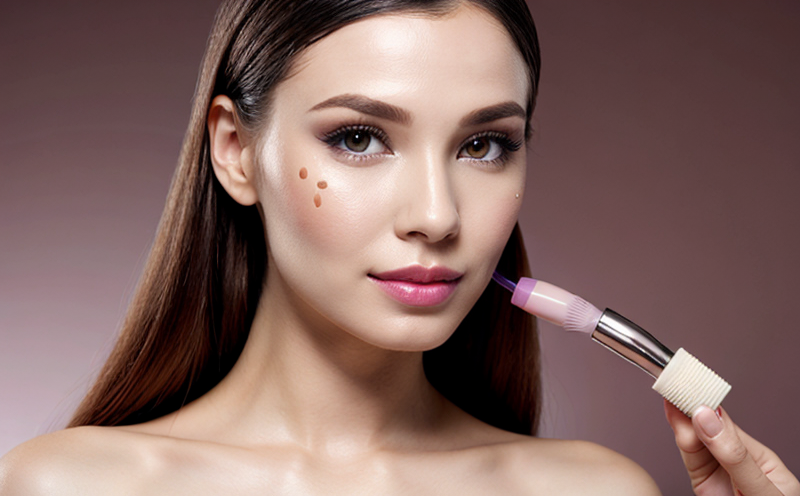In Vitro Dermal Absorption Testing of Cosmetic Formulations
The in vitro dermal absorption testing of cosmetic formulations is a critical aspect of ensuring product safety and compliance with regulatory requirements. This method allows for the assessment of how much of a substance can penetrate the skin, which is essential for predicting potential systemic toxicity or allergenic effects.
This approach leverages advanced laboratory techniques that mimic the human skin's structure without the need for animal testing. By simulating various conditions, such as temperature and humidity, we can accurately measure the absorption rates of cosmetic ingredients into the epidermis and dermis layers. This information is vital for formulators to understand and optimize product safety.
The process involves preparing the test samples by diluting or formulating them according to specific protocols. The specimens are then applied to the in vitro skin models, which replicate the human skin's architecture. Over time, the absorption of ingredients is monitored using sensitive analytical techniques like LC-MS/MS (Liquid Chromatography-Mass Spectrometry). This ensures precise and reliable data.
The testing also helps identify potential allergens or irritants that might cause adverse reactions in consumers. Regulatory bodies worldwide, including those in the EU and USA, have recognized the importance of such tests as part of their cosmetic safety evaluation programs.
To ensure accurate results, it is crucial to follow standardized procedures strictly. The following steps are typically involved:
- Preparation of the test samples.
- Application to in vitro skin models.
- Incubation under controlled environmental conditions.
- Sampling at specified intervals for analysis.
- Data interpretation and reporting.
The results provide valuable insights into the absorption dynamics, enabling companies to make informed decisions about ingredient selection and product formulation. This not only enhances consumer safety but also supports compliance with international regulations.
| Applied Standards | Description |
|---|---|
| ISO 10993-10:2015 | Biocompatibility Testing of Medical Devices - Part 10: Assessment of Dermal Absorption. |
| ASTM F854-16 | Standard Practice for the Use of In Vitro Skin Models in Assessing Dermal Permeability and Penetration of Topical Products. |
Applied Standards
| Applied Standards | Description |
|---|---|
| ISO 10993-10:2015 | Biocompatibility Testing of Medical Devices - Part 10: Assessment of Dermal Absorption. |
| ASTM F854-16 | Standard Practice for the Use of In Vitro Skin Models in Assessing Dermal Permeability and Penetration of Topical Products. |
Eurolab Advantages
At Eurolab, our expertise in in vitro testing ensures that we provide comprehensive and accurate assessments of cosmetic formulations. With state-of-the-art facilities and experienced scientists, we offer the following advantages:
- Comprehensive knowledge of regulatory requirements.
- Use of cutting-edge technology for precise measurements.
- Detailed analysis to support product development.
- Timely delivery of reliable results.
- Confidentiality and data security guarantees.
We strive to meet the highest standards, ensuring that our clients can trust in our services. Our commitment to excellence has earned us a reputation as leaders in cosmetic testing.





